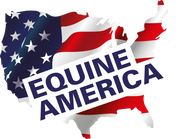The Horse's Immune System
The horse’s immune system - when to provide extra help!
Why is the immune system important and when are horses at risk?
The role of the immune system is to defend the horse’s body against foreign invaders which may cause disease or infections – including bacteria, viruses, fungal invaders, foreign proteins or parasites – sometimes collectively referred to as antigens.
The immune system of the horse, like our own, is hugely complex, yet generally very effective at repelling disease causing agents. However, there are several factors that can influence how well the immune system functions, including age, nutrition and stress.
Old, young, or malnourished horses will often have an immune system which doesn’t function as well as it should, increasing the risk of disease in these groups.
Research has also shown that stress can also result in a less efficient immune system. Commons stressors may include intense training regimes and competition programmes, frequent travelling, stabling away from home at shows with large numbers of other, unfamiliar horses, irregular feeding times, changes in management routines, poor nutrition, disruptions to social interactions (new horses entering or leaving the normal grouping).
So both competition and leisure horses may be inadvertently subjected to many factors which could result in their immune system working less effectively, making them more susceptible to illness and disease.
How does the immune system work?
There are three main lines of defence:
-
Physical Barriers
The first line of defense of the immune system are the physical barriers – the skin, the cornea of the eye and the membranes lining the respiratory passages, the digestive tract, and the urinary and reproductive tracts. When these barriers are intact and healthy, they can stop many invaders from entering the body.
Microbiome Defenders – these physical barriers are further supported by the beneficial microbes which help to destroy harmful invaders, especially in the digestive tract. Maintaining a healthy gut microbiome is key to a healthy immune system! -
Non-Specific or Innate Immunity
When these physical defences are breached -perhaps bacteria entering the body through a wound damaging the skin, or when the mucous membranes are overwhelmed by, for example, airborne viruses or bacteria, the immune system brings the next line of defence into the battle against these invaders – the innate immune response. As soon as the defences are breached, special cells release chemical “messengers” to alert and activate the innate immune response, and the inflammatory response, which we see on the horse as heat, swelling, and pain, which, in the case of a wound, may help restrict movement and prevent further damage.
This immune response is present from birth, helped by the antibodies found in mare’s colostrum and it doesn’t differentiate between the types of invaders – it just recognizes them as foreign and initiates an inflammatory response which sends white blood cells (including neutrophils, eosinophils, basophils, monocytes and macrophages) rapidly to the area of invasion (such as a wound site), to kill the invading organisms, and remove the damaged cells.
The purpose of this “rapid response” immune team is to slow the growth of the invaders and after engulfing and killing them, the white cells die, and accumulate as what we call pus – a sign of infection!
This whole process begins in a matter of seconds, and can last for days! -
Specific (or adaptive) Immunity:
Once the rapid response has started its work, the adaptive or specific response begins as a result of chemical messages sent by the damaged cells and the innate immune system. However, unlike the innate system, the adaptive immune system responds to a particular pathogen – as it meets different invaders or pathogens, it “learns” the best way to attack and kill each type, and creates a “memory” so when that invader is encountered again, it can react more quickly. Specific immunity involves more white blood cells called lymphocytes, as well as antibodies which coat the surface of the bacteria or virus to stop it multiplying and infecting other healthy cells .
(Most vaccines work by stimulating specific immunity, deliberately introducing a small amount of a pathogen, to encourage the specific immune system to react and “remember” the pathogen, so it can react quickly with antibodies if it encounters the pathogen again.)
So..... if your horse or pony is at risk of a reduced immune response for the reasons outlined above, or has already been injured or ill, and his immune system has already been challenged, why not consider providing additional nutrition support to help him recover?
Equine America’s Emune Solution is a potent blend of plant based extracts and antioxidants, to support the immune system, including Echinacea, Astragalus, Vitamins C and E, as well as nucleotides – important compounds which help to maintain healthy membranes – the first line of defense against invaders!
By Deborah Lucas MSc.Eq.S.,CBiol., R.Nutr.
 Skip to content
Skip to content


